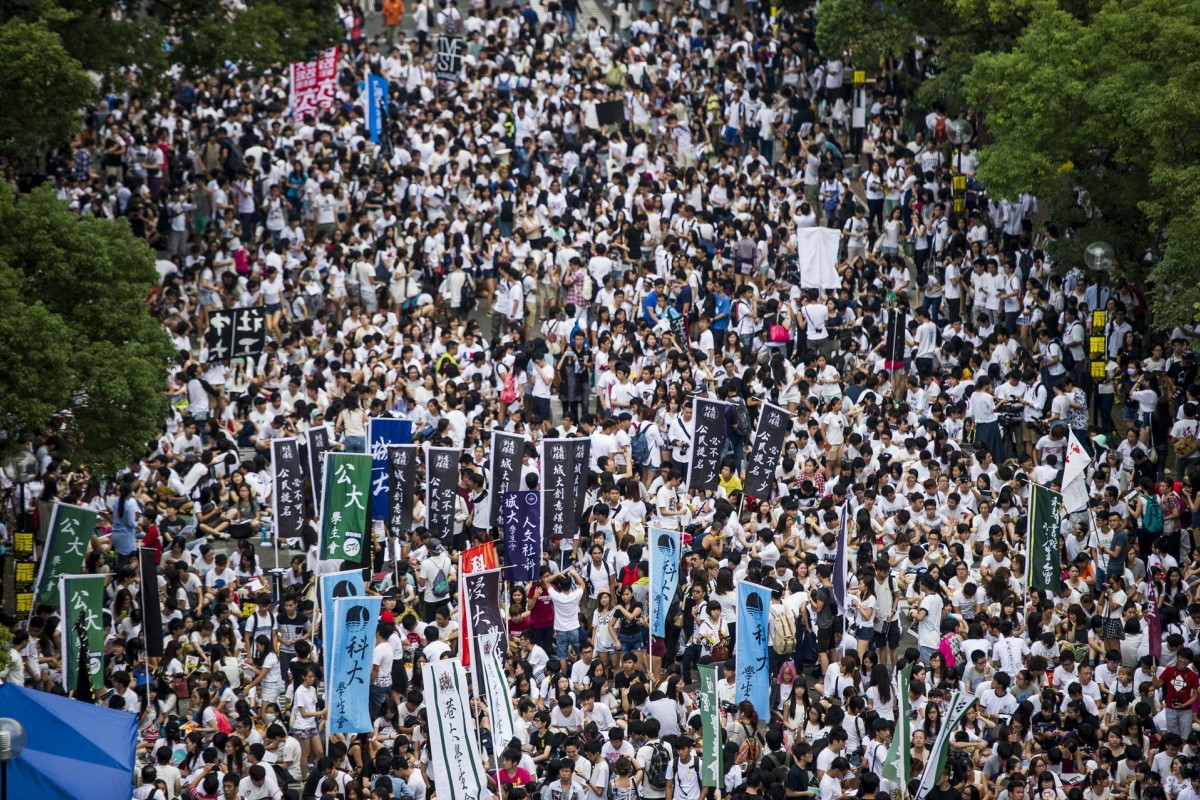
Students speak up about class boycott at The Chinese University of Hong Kong
Last week Young Post asked if you'd take part when secondary school students join the class boycott. Here are the results.

University class boycotts kicked off yesterday, and organisers said 13,000 people attended the rally at Chinese University. While classrooms may be emptier than usual today, university students will attend public lectures conducted by scholars, beginning at 10am today.
Meanwhile, some secondary school students have been wearing yellow ribbons as a show of support, and are organising their own boycotts this Friday. This will be the first time secondary school students have taken part in a boycott since the handover in 1997. Convenor of student activist group Scholarism, Joshua Wong Chi-fung, said he hopes more than 100 students will join.
According to an online survey conducted by Young Post last week, in which 223 secondary students from all of Hong Kong's 18 districts responded, 21.5 per cent said they would participate in the class boycott. Among these, 77 per cent said it was to protest against the political reform package, while 43.8 per cent believe it will have an impact on Beijing's decision. More than half thought the boycotts were meaningful, while 14.5 per cent said it was just a good excuse to skip school.
Those who said they would stay in class would do so for two main reasons: they didn't want to affect their studies, and they didn't believe the boycotts would be effective in changing the current situation (both 48.6 per cent). "It's my last year in school, so [boycotting classes] will definitely affect my DSE result," one respondent wrote. Another Form Six student wrote: "I would join, too, if my parents weren't so academics-oriented."
Nearly a quarter said parents discouraged the boycott. Some 43.4 per cent also said they didn't agree with this form of protest. "I just think it's none of my business ... if I boycotted classes, I know I would regret it in the future," wrote a Form Four student. "Anyway, I don't think we can change [Beijing's stance], so why can't we just accept [their political package]?"
Twenty per cent of the respondents believed Hong Kong should accept China's proposed package, while 61.9 per cent said it shouldn't, and 17.5 per cent said they didn't know.
Some respondents said they wouldn't participate because nobody was arranging anything in their schools, while others chose to stay out because they were "afraid of being threatened". Asked if they would call the anti-Occupy Central hotline if they knew their classmates intended to boycott classes, 12 per cent of the respondents said they would. "I can't let my classmates be used by anti-government forces as political promotional tools," a Form Three student wrote.
Some described measures used by the pro-Beijing forces as "white terror", "hypocritical" and "childish".
"The creation of the hotline is unbelievable, and can be likened to Mao's encouragement of students, children and neighbours to denounce others," wrote a Form Six international school student. Others wouldn't tell on their peers because they respected their personal choice and privacy.
"They shouldn't use such hardline methods to take away our voice. We're one of the stakeholders, too," wrote a Form Five student. "We can think independently and critically, and I don't want the future generation to become politically apathetic because of such measures."
Another Form Five student was purely practical, not wanting to skip classes and then spend a lot more time doing independent study, saying: "I don't want to sacrifice sleep [to self-study], especially when there isn't any long holiday period coming up."
Watch our video interviews at the 9.22 university class boycott
